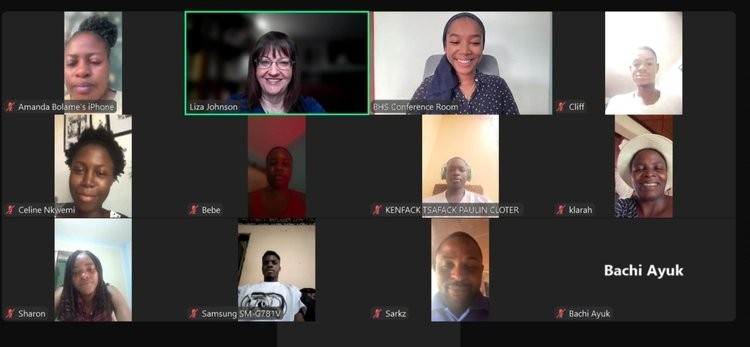In Cameroon, access to quality healthcare is often hindered by long wait times, understaffed facilities, and limited transportation options. Klarah, a pioneering telehealth platform, tackles these challenges head-on by delivering personalized, in-home medical care through its mobile app. Often called the "Uber of Nurses," Klarah connects patients with qualified nurses who provide timely, professional healthcare without the need to visit overcrowded hospitals.
Launched by Innocentia—a seasoned nurse with over 20 years of clinical experience—Klarah empowers families locally and across the world. Loved ones abroad can schedule appointments, make payments, and receive real-time updates on the patient's condition, all through the Klarah platform. With over 2,000 visits completed, Klarah's network of 750 trained, independent nurses is already making a measurable impact on access and outcomes.
However, as Klarah rapidly scaled, gaps in clinical consistency became clear. Innocentia observed that while the nurses were credentialed and passionate, many struggled in key areas, including effective communication with patients, pressure ulcer (bedsore) management, accurate clinical assessment, and managing specific chronic illnesses like hypertension and diabetes.
To address these issues sustainably, Klarah needed a structured, high-quality training program—and Community Nursing Services (CNS) answered the call. From August 2024 through early 2025, CNS partnered with Klarah to design and implement a comprehensive online nurse training curriculum to close these gaps and standardize high-quality care across the platform. Drawing from years of clinical education expertise, CNS worked closely with Klarah leadership and frontline nurses to identify the most urgent needs and tailor the content accordingly.
The project was led by Liza Johnson, RN, MBA, CHPN, CNS’s Chief Nursing Officer, who brought a wealth of expertise in clinical education, quality improvement, and international program development. Her leadership was instrumental in ensuring the training program was practical, culturally appropriate, and aligned with both U.S. and African healthcare standards.
The result was a modular, accessible training program focused on:
- Communication Skills: Helping nurses explain diagnoses, medications, and procedures clearly and compassionately, ensuring that both patients and family members feel informed and reassured.
- Pressure Ulcer Prevention and Management: Providing practical, evidence-based strategies to recognize, treat, and prevent bedsores, a common risk in homebound patients.
- Clinical Assessment: Enhancing nurses’ ability to perform accurate physical assessments—including auscultation and symptom recognition—which is critical in settings with limited diagnostic tools.
- Disease-Specific Management: Strengthening knowledge of non-communicable diseases (NCDs) such as diabetes, hypertension, and asthma, which are increasingly prevalent in Cameroon and require ongoing, coordinated care.
The completed training program is now in use across the Klarah network, with nurses gaining access to self-paced modules and case-based learning tools. CNS also helped establish mentorship frameworks and evaluation strategies to reinforce the training’s long-term impact.
This successful partnership marked a pivotal step for Klarah. With CNS’s expertise, the platform not only expanded access to healthcare—it significantly raised the quality of care being delivered. As Klarah continues to grow, this solid foundation ensures that every nurse is equipped to provide care that is not only accessible, but consistently excellent.
Together, Klarah and CNS have shown that meaningful collaboration can drive real, lasting change in community health.
